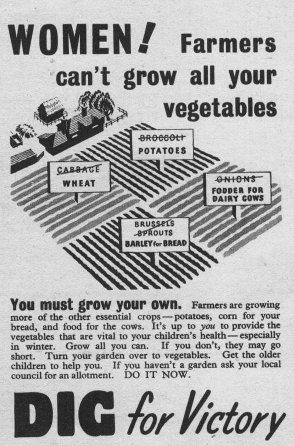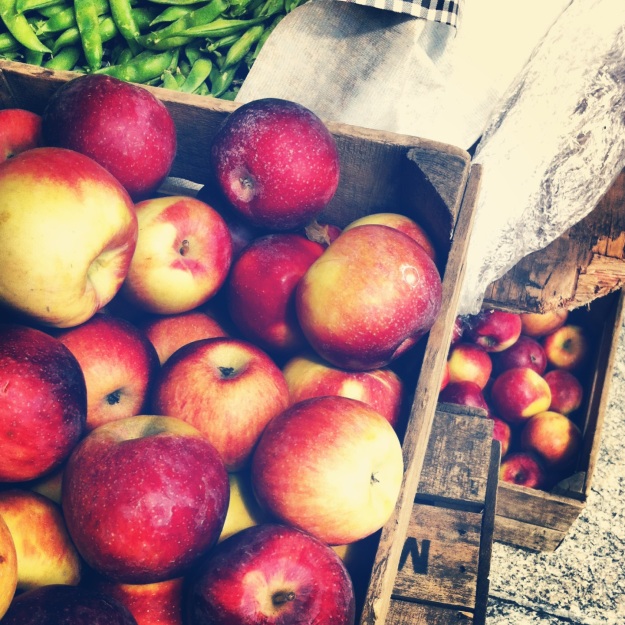I may have mentioned this before, but I’ll be writing a paper on the history of urban agriculture for a class I’m taking about environmental health. I can’t wait: I’m interested in urban farms as someone who’s obsessed with all aspects of food (culture, sustainability, eating). But, on an even cooler (nerdier) note, it turns out that urban farms aren’t as recent and hipster-y as I first thought.
Of course they aren’t: how could I have forgotten about the Victory Garden programs during World Wars I and II? (I read Molly’s American Girl books, after all.) Essentially, what I know at this point is that the government promoted personal and community gardening when food shortages forced the price of food up. (Incredibly, the ensuing victory garden program would go on to yield 44% of American-grown produce at one point.) Additionally, in Great Depression-era Detroit, Pingree’s Potato Patches (named after the city’s mayor) sprung up around the city and provided jobs for the unemployed and food for the hungry, again quite successfully. After a drop off for a few decades, urban gardening became more popular again in the seventies, often treated as the beginning for the current trend.
And speaking of this trend, the conversion of vacant lots to community- or private-led gardens is now undoubtedly hip. From potted plants on (pricey – and privileged) patios to volunteer-tended plots, an urban garden makes a political, health-conscious and energy-conscious statement. Here, I’m touching on an important backdrop: a food movement with so many concerns consolidated that an urban garden is a complicated subject. There’s local and slow food, energy conservation, organic and GMO-safe consumption, ending both obesity and hunger, nutrition education, recognizing the global food chain, economic and personal empowerment, and so on. Five years ago, former professional basketball player Will Allen won a MacArthur Grant for Growing Power, a nonprofit organization he founded around a community garden that promoted nutrition and employed community members.
I want to compare the motivations for today’s urban agriculture to those of previous movements. Will it be interesting? I hope so, and if it isn’t, I’ll change my focus ever so slightly. Before I forget, I wanted to pass along some fascinating reading (and my favorite source so far): a series on urban food systems from Grist.
PS I love coming up with pithy titles for projects, and I think I’ve found something. Maybe something like this: ‘What Does My Garden Grow? An Examination of the Changing Support for Urban Farming’?



